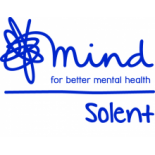Friday 20th February 2026
Subscribe to the
AcSEED mailing list
This is how we share information and good practices relating to mental health and wellbeing support in schools and colleges
What's New
 The AcSEED Newsletter
The AcSEED Newsletter
29th September 2025
AcSEED Newsletter for September 2025
 AcSEED Youth MH Award
AcSEED Youth MH Award
18th July 2025
AcSEED receives Recognised Leader in Youth Mental Health Awareness 2025 Award from Acquisition International.
 Michael Syddall Accreditation
Michael Syddall Accreditation
14th May 2024
Michael Syddall CofE (Aided) Primary School in Richmond, North Yorkshire receive AcSEED Award
 Sherborne House Accreditation
Sherborne House Accreditation
16th January 2024
Sherborne House School in Chandlers Ford, Hampshire receive AcSEED Award
2013 - A Review of the Year in Mental Health
31st January 2014 ... Charlotte
Another year, another succession of headlines concerning mental health. Only a few weeks into 2014 and we're already reading about the launch of a pilot scheme placing psychiatric nurses within custody suits, 'Urban Outfitters' controversially distributing 'depression' t-shirts, and a mental health patient accusing a care worker of multiple rape.
But what (if anything) did we learn from events in 2013? Here's a look back at some of the key stories in mental health, and why they were significant for young people.
January: Celebrities speak out
The beginning of the year saw several familiar faces talking about their experience of mental illness. Rae Earl, whose writing inspired the hit series 'My Fat Diary', spoke to The Guardian about her previous struggles with anxiety and OCD, along with the terrifying experience of being a young person in an adult psychiatric ward. The new series of "My Fat Diary" will be broadcast in February 2014.
My Mad Fat Diary: Rae Earl describes her childhood mental health issuesJanuary also saw promising football player Michael Johnson from Manchester City opening up about his mental illness. Johnson was tipped to play for England, with former team-mate Dietmar Hamann tweeting "Michael Johnson...the biggest talent in English football since Steven Gerrard." Johnson, whose time at Manchester City subsequently came to an end, admitted he had been receiving treatment at the Priory.
Johnson reveals mental health problems triggered his sad exit from Man CityLater in 2013 Steven Fry, who regularly talks about Bipolar Depression, confessed that his last suicide attempt was "a close-run thing".
Stephen Fry: recent attempted suicide a "close-run thing"Whilst an increasing number of celebrities are finding the strength to share their experiences of mental illness, we continue to debate whether or not this is constructive. However these stories do demonstrate the breadth of such problems, and provide inspiration to young people that emotional challenges don't need to be a barrier to achieving success.
February: Parliament challenges stigma
February 28th brought the launch of the Mental Health (Discrimination) Act 2013, a major step towards demonstrating that mental health stigma is not acceptable and must be tackled. Section 141 of the Mental Health Act 1983 was repealed ensuring that MPs could no longer be disqualified from parliament due to mental illness, the Juries Act 1974 adapted to remove the restriction on "mentally disordered persons" undertaking jury service, and The Companies Regulations 2008 modified to remove restrictions that prevented an individual from acting as a Company Director "by reason of their mental health".
Mental health stigma remains prevalent, and frequently suppresses the ability of those in recovery to fully engage with society. Eliminating such stigma will undoubtedly take many years, but these regulation changes demonstrate parliamentary understanding and a determination to stimulate change. They are a significant step in the right direction and certainly have my approval - more of the same in future please !
March: VIK comes to an end
March was a watershed for the young people involved in the YoungMinds' Very Important Kids (VIK) project. The three year venture engaged young people up and down the country in campaigning to improve mental health services, raising awareness of mental health and increasing young people's participation in services and delivery. The achievements of the young people involved were vast; they delivered training to professionals, featured in the national media, met with government ministers and helped establish participation groups. But ultimately they gave young people a voice within mental health services. The project consulted over 5635 young people and delivered 133 CAMHS training sessions on participation.
Whilst the end of VIK was undoubtedly a sad occasion for those involved (including me !), many recognised that participation had helped them to find something constructive from their previous negative experiences.
Celebrating the end of YoungMinds VIK project as the work continuesOn 20th January 2014 YoungMinds will launch their new participation campaign 'YoungMinds VS'. Why don't you get involved !
YoungMinds VSApril: Royal Patron for Place2Be
"Too many young people are suffering from emotional problems, and the impact can be simply devastating. Place2Be is doing extraordinary
work in this area, and I am looking forward to seeing more of their life changing work, and supporting it wherever possible."
HRH The Duchess of Cambridge
In April Kate Middleton was announced as the Royal Patron of Place2Be, an organisation which provides emotional support within the school environment to children aged 4-14. The charity supports children in developing emotional resilience and also provides early intervention. Two hundred schools benefit from the Place2Be service which includes one to one counselling and group work. The involvement of Her Royal Highness certainly helped to bring children's mental health and wellbeing into the limelight.
Place2Be: The JournalPlace2Be: Our Royal Patron
May: DSM-5
May brought controversy around the world as the American Psychiatric Association published the latest version of the Diagnostic and Statistical Manual of Mental Disorders (DSM-5). While the UK uses the World Health Organisation's International Classification of Diseases to diagnose mental disorders (ICD-10) the DSM-5 still influences public and professional attitudes towards mental illness. DSM-5 may also affect the next revision of the ICD.
DSM-5 was criticised for being substantially influenced by the pharmaceutical industry, and for medicalising normal human emotions and behaviours such as temper tantrums and grief triggered by bereavement. It also lowered the threshold for diagnosing illnesses such as General Anxiety Disorder raising fears of premature labelling.
In reaction to DSM-5, NHS Choices described the manual as "a guide rather than a bible". The way these guidelines are applied will be important for young people as diagnosis during adolescence is already potentially hazardous.
Controversy over DSM-5: new mental health guideAlso in May a tribunal of three judges ruled that The Department for Work and Pensions had not made adequate adjustments to the fitness-for-work test. They raised a specific concern that the test could be unfair to people with mental illness who may not understand the questions and could lack insight into their symptoms. Let's hope that appropriate changes will be made to reassure and protect young people who have illnesses that prevent them from engaging with full time employment.
Fitness-for-work tests unfair on people with mental health problems, court saysJune: It's a Mad World Season
"It's a Mad World Season" was broadcast on BBC3 in June, the series aiming to highlight a variety of issues around mental health. The season kicked off with "Don't Call Me Crazy" a three part documentary following young people in a psychiatric unit. This was the first time that cameras have been granted access to such a unit and it certainly got people talking. Many scenes featured young people in distress and included graphic images of self harm. There were however also lighter moments highlighting the importance of friendships and having fun.
There were mixed feelings as to whether it was ethical to broadcast young people in their most vulnerable moments, and whether a patient Sectioned under the Mental Health Act has capacity to give their consent. However "Don't Call Me Crazy" did provide viewers with a unique insight into a children's psychiatric ward, an environment that most members of the public will never directly experience.
My personal highlight from the series was "Diaries of a Broken Mind" in which 25 young people used handheld cameras to record the ups and down of living with mental illness over a 6 month period. The program offered a unique perspective on the day to day challenges of being a young person with a mental illness.
Review of BBC 3's Don't Call Me CrazyAlso in June 'Mind' published their report on 'Mental Health crisis care: physical restraint in crisis' which considered the use of restraint within psychiatric hospitals. The research found that the number of physical restraint incidents ranged widely between trusts, from 38 to over 3,000 in one year. The report cited 1,000 injuries that had been caused through restraint and 3,000 instances had been facedown. The charity called for a ban on facedown restraint and provision of accredited training for staff. There is clearly a balance to be struck between staff safety and patient care, but I did find some of these statistics quite alarming!
Mental health crisis care: physical restraint in crisisJuly: MindFull launch
Early July brought the official launch of MindFull, an online service providing support, information and advice on emotional wellbeing aimed at 11-17 year olds. The website (www.mindfull.org) offers three strands of support....
- Self-help: information and resources on mental health compiled by professionals and young people. This section also includes a guide to mindfulness meditation.
- Mentoring: the opportunity to speak with another young person trained in supporting others.
- Counselling: access to a professional offering 1 to 1 and group counselling.
This looks to be another great resource for young people.
[Link removed as web site no longer available]
August: Rise in suicides
In August 'The National Confidential Inquiry into Suicide and Homicide by people with Mental Illness' was published by The University of Manchester. The report suggested that following previous falls the number of suicides by people with mental illness went up in 2011 to 1,333. The rise was partially attributed to a change in the 'causes of death' coding, leading some to claim that the 2011 data could not be accurately compared with previous years. Others suggested the rise was a consequence of unemployment and the current economic climate. Interestingly the number of suicides committed by patients in psychiatric units fell, and was outnumbered by suicides of people under Home Treatment Teams. London had the lowest suicide rate while the North of England had the highest. In many circumstances death was subsequent to the person disengaging from mental health services.
The National Confidential Inquiry into Suicide and Homicide by People with Mental IllnessSeptember: Custody, a holding place for the mentally ill
This subject was in and out of the papers all year; however the most revealing exposure came from September's Panorama programme 'Locked up for being Ill'. The program documented the amount of police time (up to 25%) and resources spent helping people with mental illness, and highlighted how inappropriate it was to keep individuals detained under Section 136 of the Mental Health Act in a custody cell. Whilst it would probably seem obvious to most people that these patients actually need support in a hospital environment, we still don't seem to be close to finding a sustainable solution to this problem.
Locked Up For Being Ill?The topic of mental illness featured in multiple TV and newspaper articles during September and October as it became apparent that support services were being stretched to their limits to accommodate a growing number of patients. Mental health services were proclaimed to be 'in crisis' and the situation described as "unsafe". There was particular concern about the number of psychiatric beds being cut (1,500 beds since April 2011) which caused many patients to be sent out of area for treatment. BBC News and Community Care magazine sent Freedom of Information Requests to 53 trusts and discovered that the average bed occupancy was 100% with half of all hospitals running over this. At one moment in time it was believed that there were no NHS or private psychiatric beds available across the whole of England!
In times of recession it is understandable that cuts need to be made in public services. However I do wonder whether mental health services have suffered more than most, with government perhaps riding on stigmas associated with discussing such illnesses in public. The shortage of beds also suggests we need to do more in terms of the quality and availability of treatment in the community, ensuring only those with real need are admitted to hospital.
Warning of NHS mental health crisis Mental health treatment is stretching services to the limit, report warnsOctober: Mental health stigma makes the front pages
October was undoubtedly the busiest month with regard to mental health related events. Who could forget the scandal that was caused when leading supermarkets Asda and Tesco released Halloween outfits entitled "mental patient fancy dress costume" and "psycho ward" respectively? The public took to twitter to voice their outrage at the scandal which many found offensive and unacceptable. The outfits were accused of promoting outdated stigmas towards people with mental illness. The supermarkets consequently removed the costumes from sale, apologising and making a donation to 'Mind', the mental health charity.
Asda and Tesco withdraw Halloween patient outfitsThen a memorable headline in The Sun newspaper: "1,200 killed by mental patients". Not only was this front page article accused of being irresponsible for feeding mental health discrimination, but the figures were also vigorously disputed. The article failed to mention that 95% of people who commit homicide do not have a mental illness, and that this vulnerable group is more likely to be a danger to themselves rather than to others. The piece glossed over the finding that individuals with mental illness are 10x more likely to be victims of crime. Whilst sensationalist headlines may help papers to attract attention and sales, this type of publicity not only encourages mental health stigma but also makes it even harder for people to ask for help. The fight against mental health stigma is a continuing battle for many of us, and is certainly not helped by misleading and melodramatic articles in widely read papers and magazines.
The Sun newspaper's '1,200 killed by mental patients' headline labelled 'irresponsible and wrong'November: Happy Birthday Samaritans
November was a time of celebration for Samaritans who marked their 60th birthday in 2013. To recognize the occasion BT agreed to let the charity advertise the Samaritans service in 20 of their phone boxes, and also displayed a birthday message on the London BT Tower. Samaritans took their first call on 2nd November 1953, and since then the service has grown and grown with the charity helpline now receiving a phone call every six seconds. The work of Samaritans also includes supporting schools, influencing the media, and working to reduce railway deaths.
In contrast ... The AcSEED Initiative was officially formed in 2013. AcSEED has been working with Samaritans on their school education resources, and is proud to be associated with such a long-standing organisation.
BT help mark our 60th birthday celebrationsAcSEED Collaborate with Samaritans
Also in November Channel 4 broadcast a four part series focusing on mental health. 'Bedlam' gave an insight into the world's oldest psychiatric hospital, South London and Maudsley. The programs featured a range of mental health disorders from OCD to psychosis, and many scenes depicted heart-rending moments as service users battled with the symptoms of their illness. I felt quite uncomfortable watching patients in their most vulnerable moments, and really hope these images don't prove detrimental to their future recovery. However it did expose the emotional challenges faced by patients, their families, and the hospital staff.
Bedlam, Channel 4, reviewDecember: Mandela's funeral mishap
As the world mourned the death of Nelson Mandela, his funeral was clearly going to be a widely viewed historic event. One of the most unexpected talking points was the sign language translation of Thamsanqa Jantjie. Having illicitly gained access to the VIP area of the ceremony his made up hand gestures were later said to include references to 'prawns' and 'rocking horse'. It subsequently emerged that Thamsanqa suffers with Schizophrenia and may have been experiencing a psychotic episode. Thamsanqa, who had been standing close to President Obama, defended his gesticulations claiming to be a qualified translator working for SA Interpreters (though this company could not been traced). Thamsanqa later apologised for his performance which offended many people in the deaf community.
What's he trying to say now? Fake Mandela signer blames 'voices in his head' for gibberish interpretation that included 'prawns' and 'rocking horse'December also brought controversy when Essex NHS trust obtained a Court Order to force an Italian woman suffering with Bipolar Depression to have her baby by caesarean section. The woman had been visiting the UK when her mental health deteriorated and she was placed under Section of the Mental Health Act. She had no knowledge that the authorities had decided to deliver the baby via forced C-Section, and the trust was criticised for not involving her family or Italian health services. The baby was born in August and taken into care a day after its birth. Even though the woman appeared to have recovered, and pleaded to keep the child, the courts ruled that the girl should be adopted. The case raised serious questions about capacity and the transparency of the legal system and associated family services. It is difficult for the public to judge such situations without all of the information, but we should expect such decisions to include appropriate consultation with relevant family and health services, and with a high degree of accountability.
Please don't take my baby: Agony of mother whose baby girl was put up for adoption after secret court judge forced her to have a caesareanWho knows what 2014 will bring, but if last year was anything to go by it's going to be a busy one. Whether it's celebrities disclosing their health challenges or retailers stocking stigmatising clothes, mental illness is never far from the papers! Happy 2014 everyone!
Charlotte






